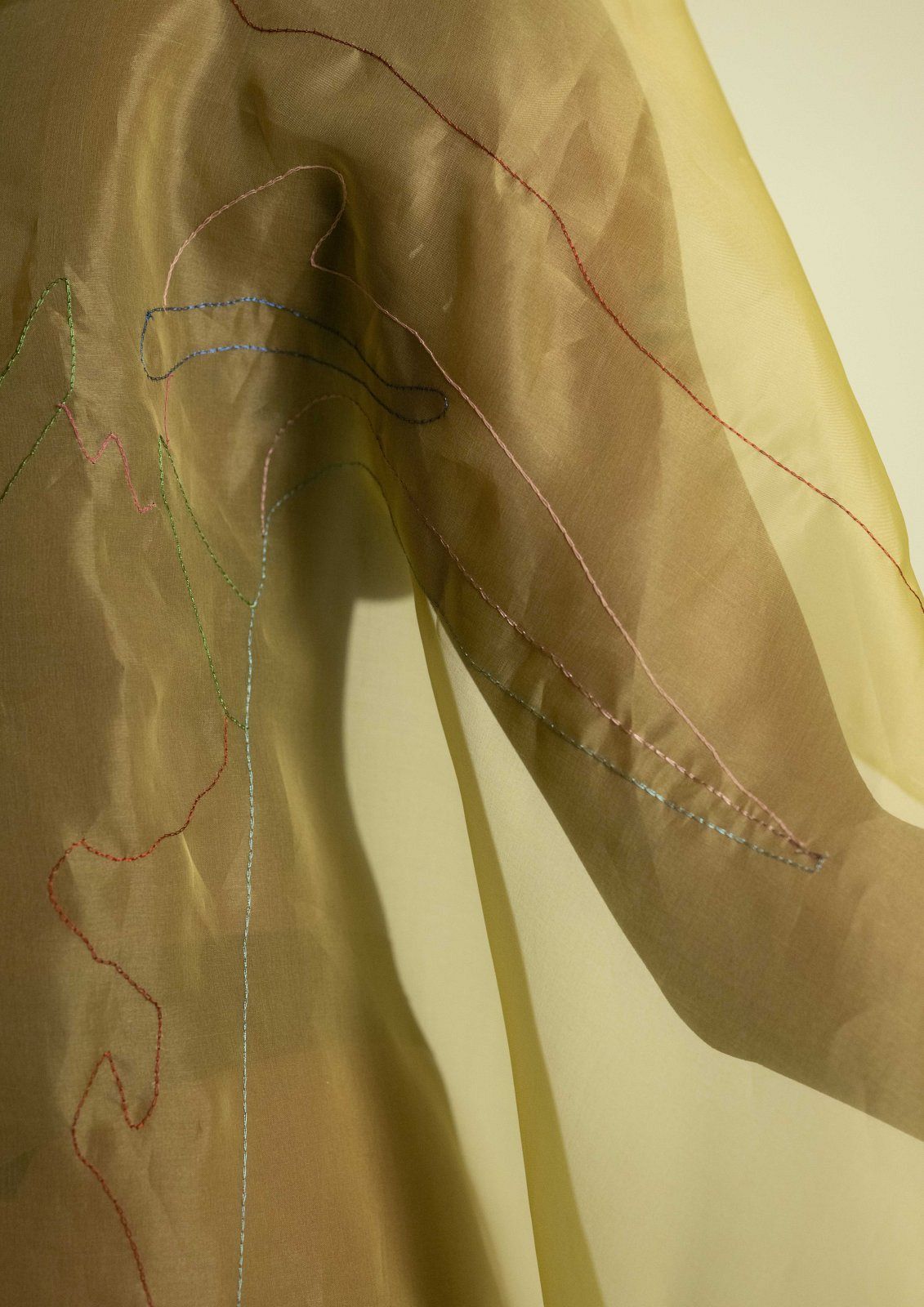
Petra Huisman
Keywords: Fashion, Textile, Research
Internship: Iris van Herpen
prhuisman9@gmail.com
www.instagram.com/rinicki/
www.linkedin.com/in/petra-r-huisman-3299b1146/
My name is Petra Huisman, a research-based fashion designer from the Netherlands. In my opinion, there is not enough emphasis on in-dept research that is done in the process of creating a fashion collection. In particular during the showcase on a catwalk. During my design process, questions as: 'Can I use this as inspiration?’ And ‘Can I choose this hairstyle for models?’, were on my mind often. I wanted to figure out the core of these questions and answer them during this graduation year.
Interests and confrontation
My drive was especially fuelled by an indirect accusation of cultural appropriation related to my third-year collection. As a white Dutch girl living a comfortable life, my interests in the life of others through listening to hip-hop music and traveling can be interpreted as the direct opposite. By starting with theoretical research on the history of colonialism and its relation to the current fashion industry I became aware of the origin of the systems we are living in today.
A digitalized human touch
This project was made in a world in which society started to become more aware of racial inequality via social media due to the murder of George Floyd. People tried to educate each other in particular through posts on Instagram. All during the COVID-19 pandemic, that led to lockdowns and turned our lives into a virtual and technological reality. The lockdowns have strengthened the expression of people's opinions online.
New perspectives
For me reaching out to people and ask if they were open to talk to me and collaborate, led to extremely mixed responses. After reading in books, listening to podcasts and watching documentaries in order to write my thesis. I decide to reach out to people of colour in the industry, girls that modelled for me, classmates, family and friends. Asking them if they were open to talk with me about identity & fashion, racism in the fashion industry, cancel culture, cultural appropriation, intersectionality and white allyship.
Open for the unknown
The installation shows six videos on multiple facets related to cultural appropriation in the fashion industry. The videos have anonymised visuals of the speaker. As subtitles, a handwritten-like typeface is used, to give it a human feel. The feelings and impact of the conversations are captured in photos of girls wearing see-through vibrant coloured silk panels. On which a drawing of a young naked woman is hand embroidered. Furthermore, handpicked quotes from the conversations that left a mark are graphically designed, laser cut on cotton fabric. Photos of this show the layered thoughts that came through in the conversations. Also, a personalised font was designed, making use of the white and negative spaces in the letters.
For the graduation show a wooden construction is presented that symbolises a head. In here the viewer gets confronted with perspectives on cultural appropriation, through sound, drawings, textile, text, videos and photos. The project is not finalised and never will be. There is not one answer to the questions I was asking myself. It is an on-going process that can only be tackled by working together.
For my graduation I wanted to investigate what my role as a graduating white Dutch fashion student could be in contributing to a more equal, fair and honest fashion industry. This is a very complex subject on which different opinions are expressed. Topics such as racism are complex and loaded, people often don’t talk about it with people outside of their comfort zone. Only by reaching out and talking to people you are not close to you can get to know the other perspective.
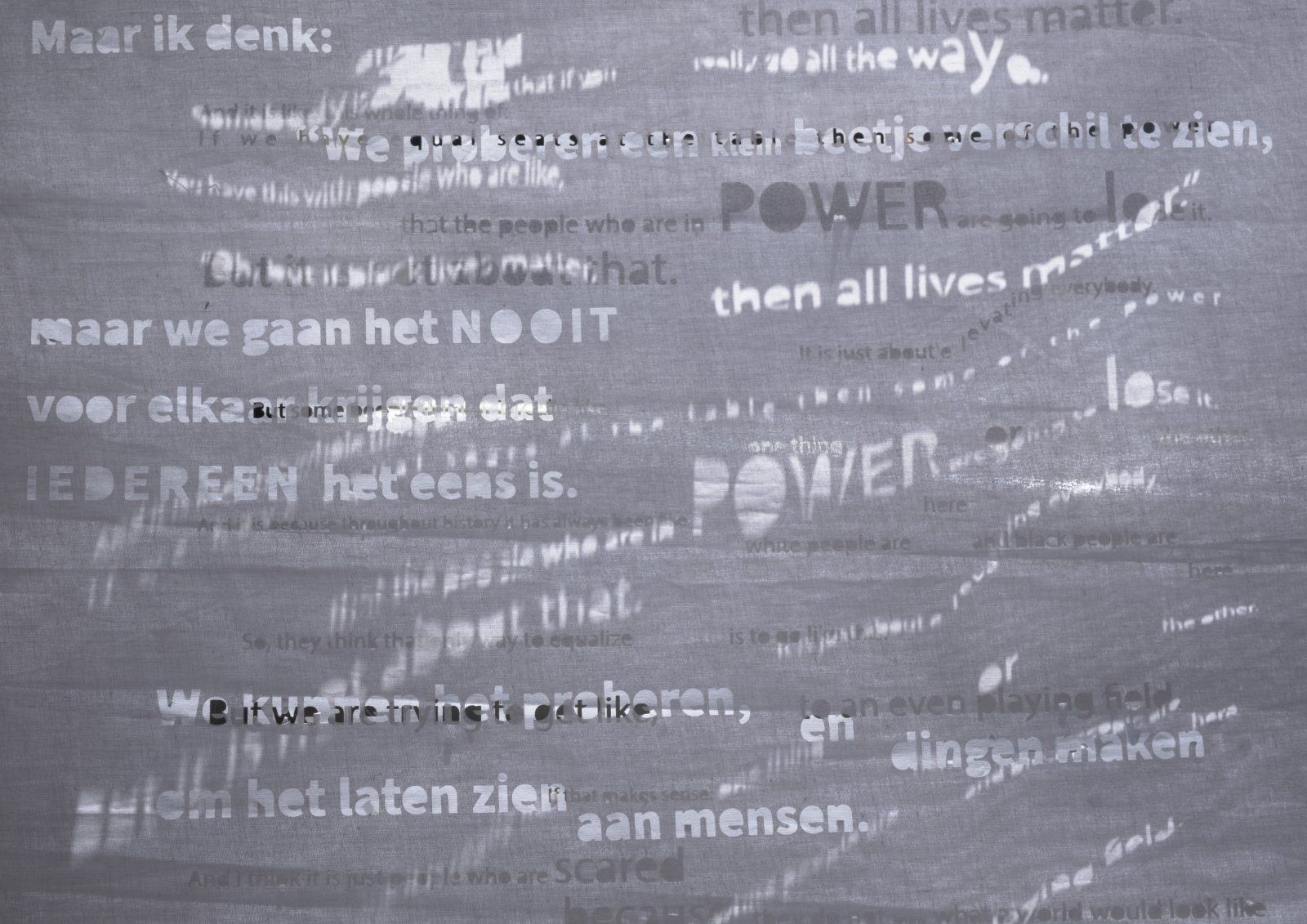
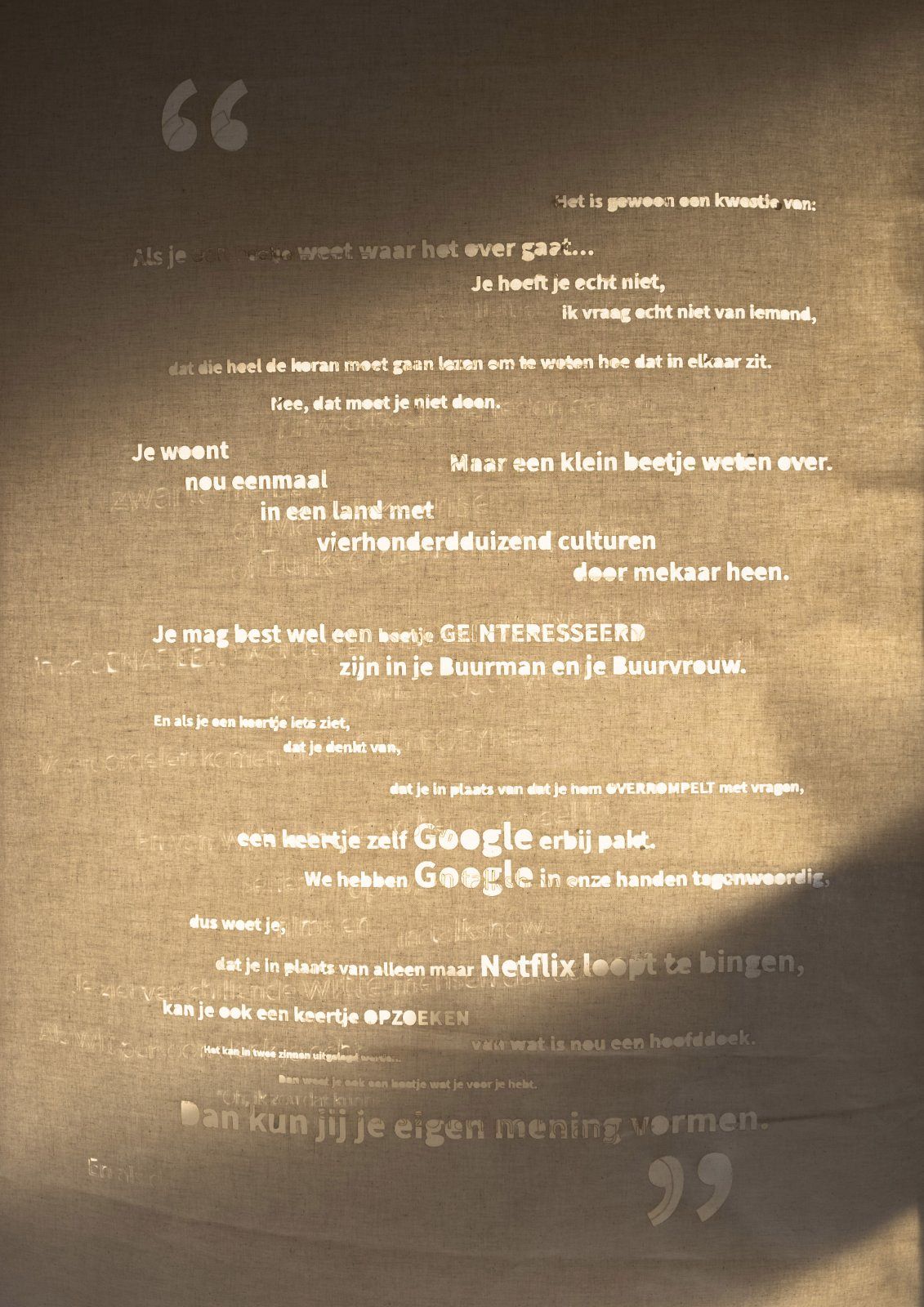
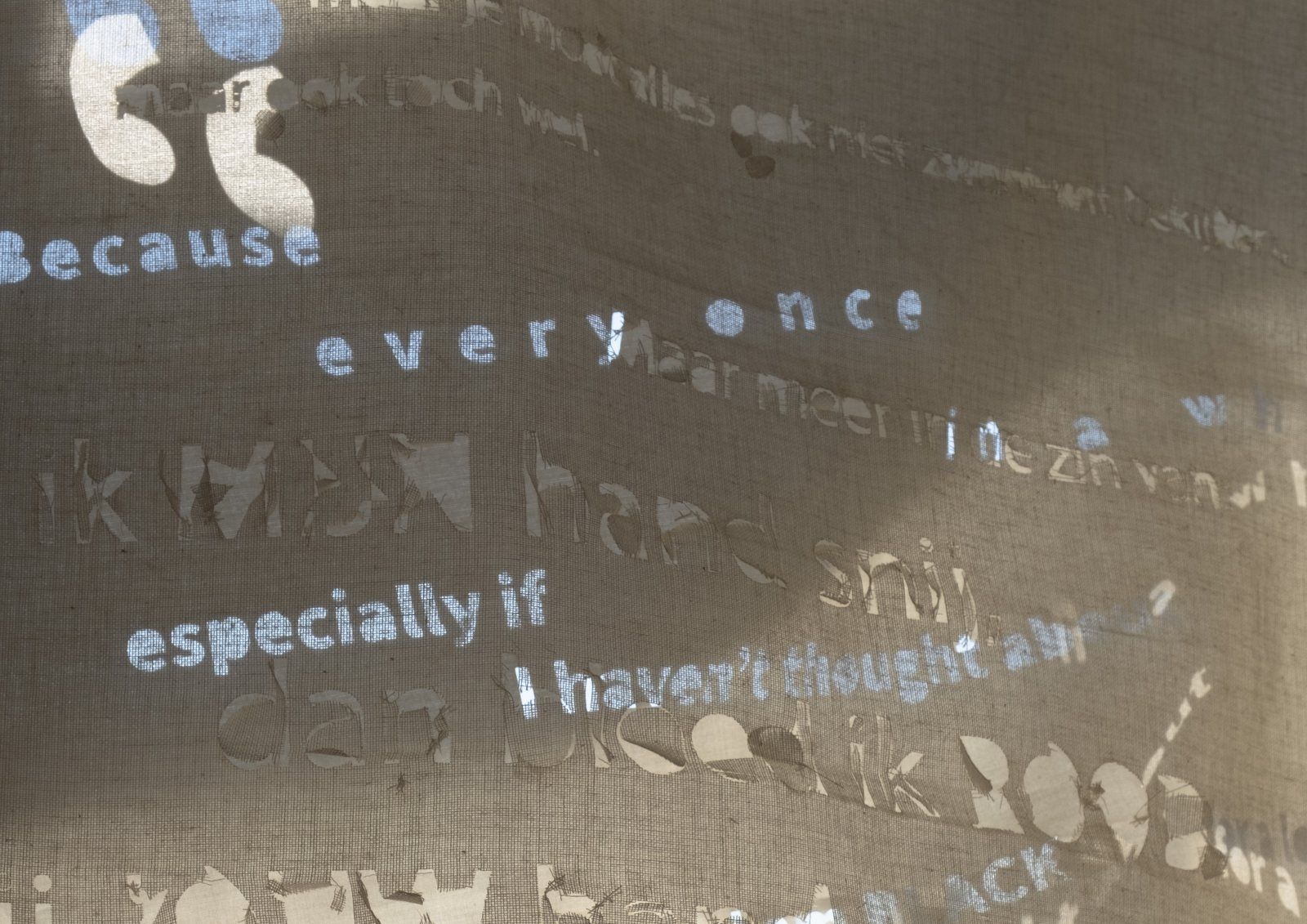
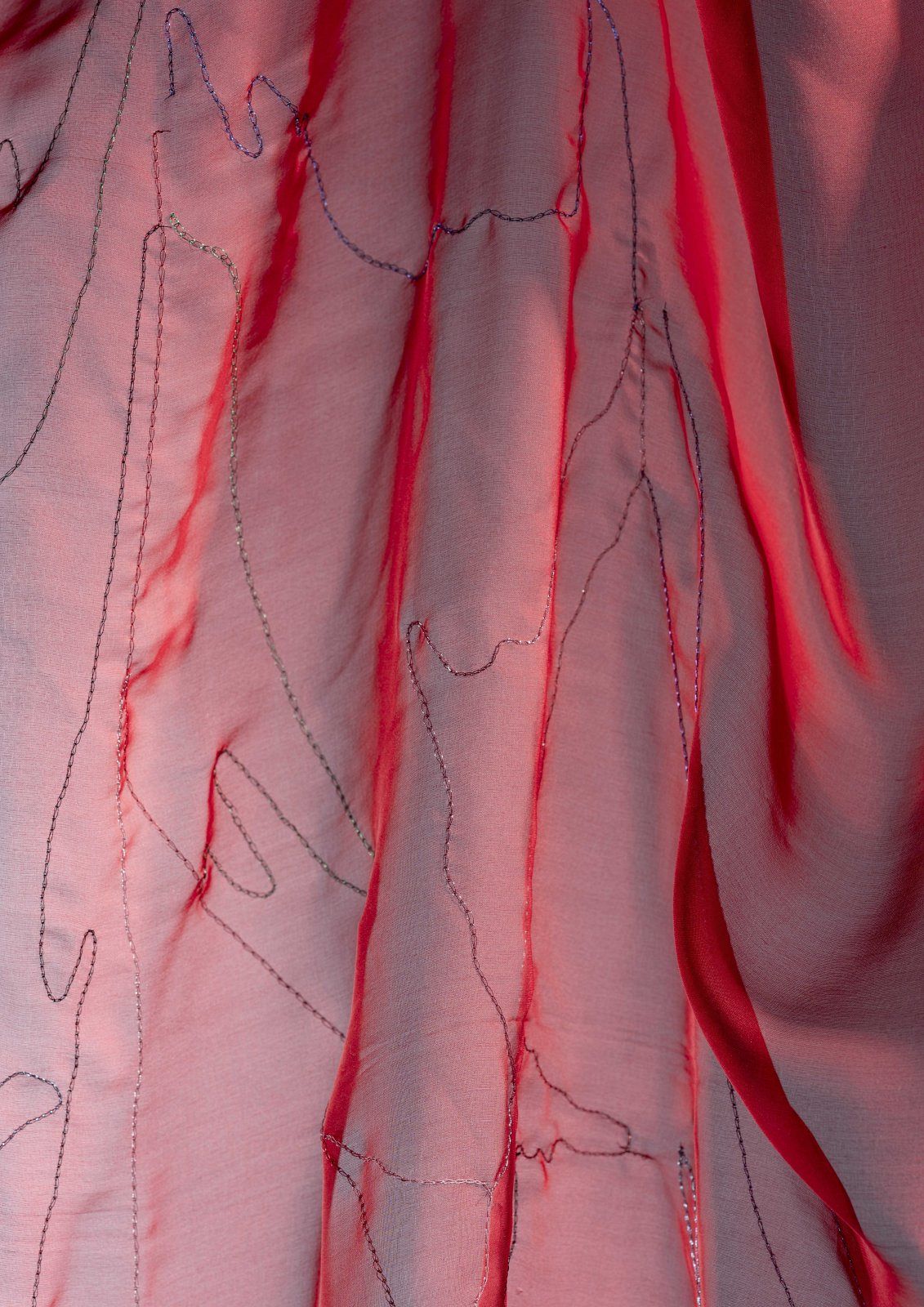
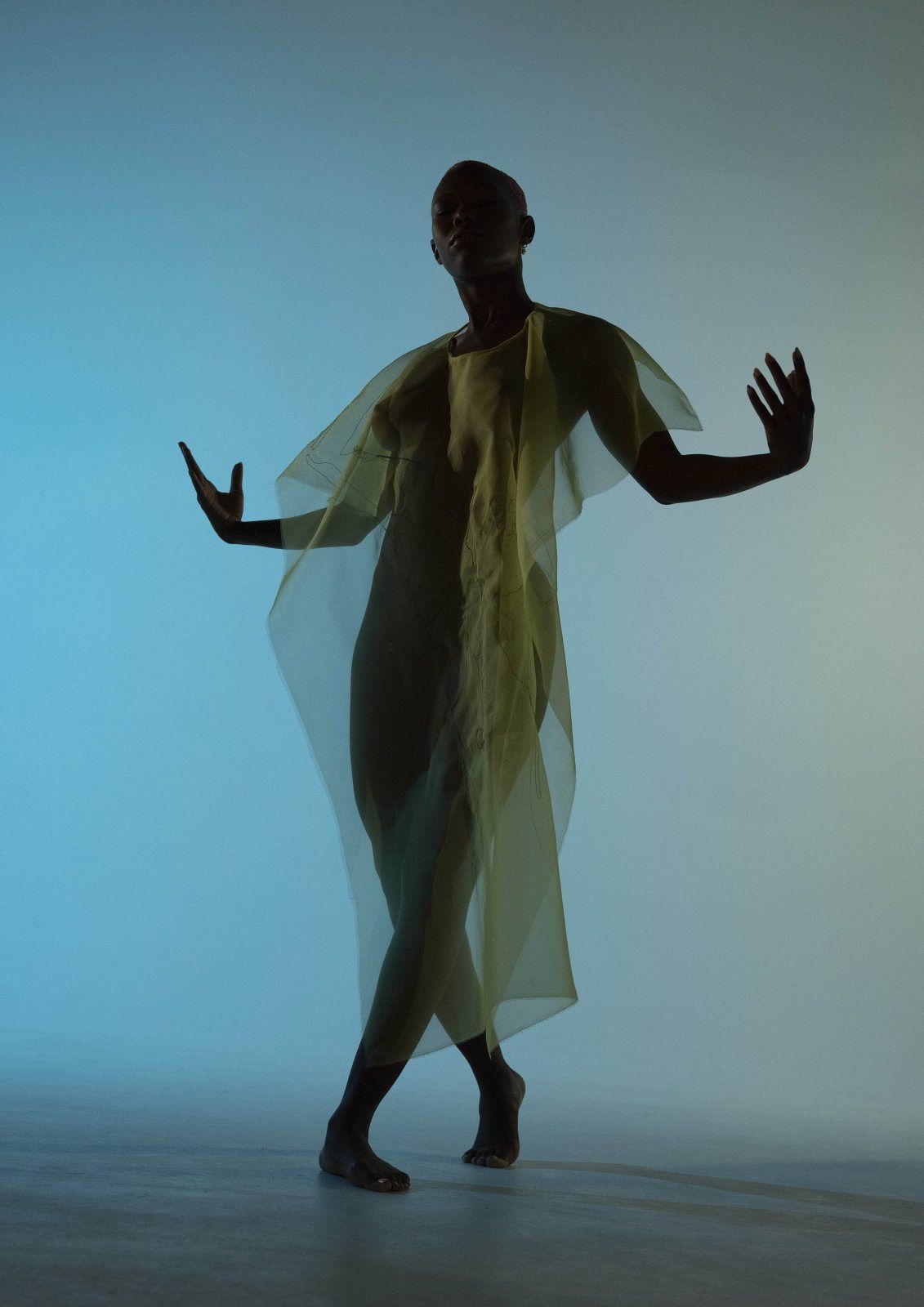
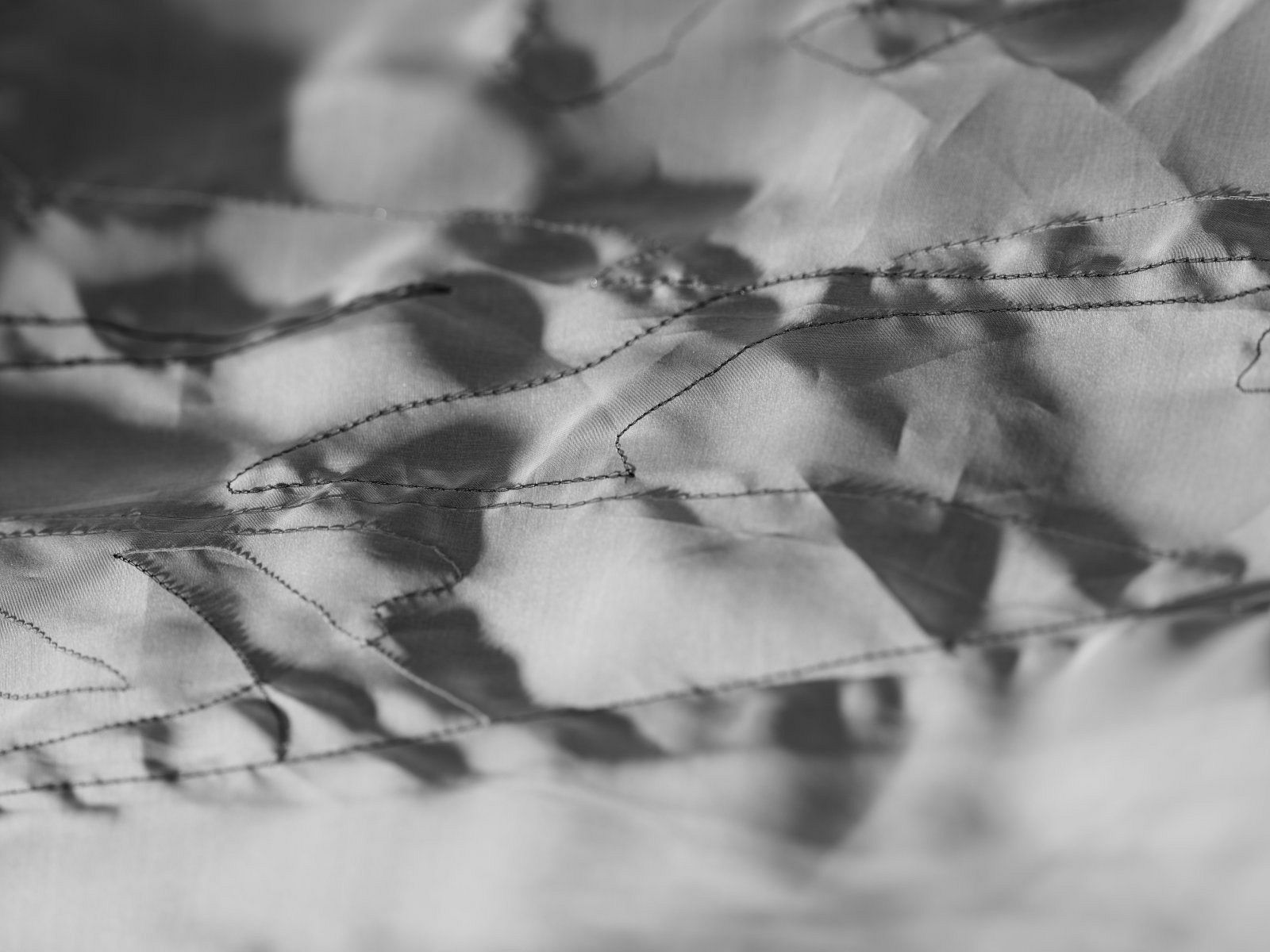
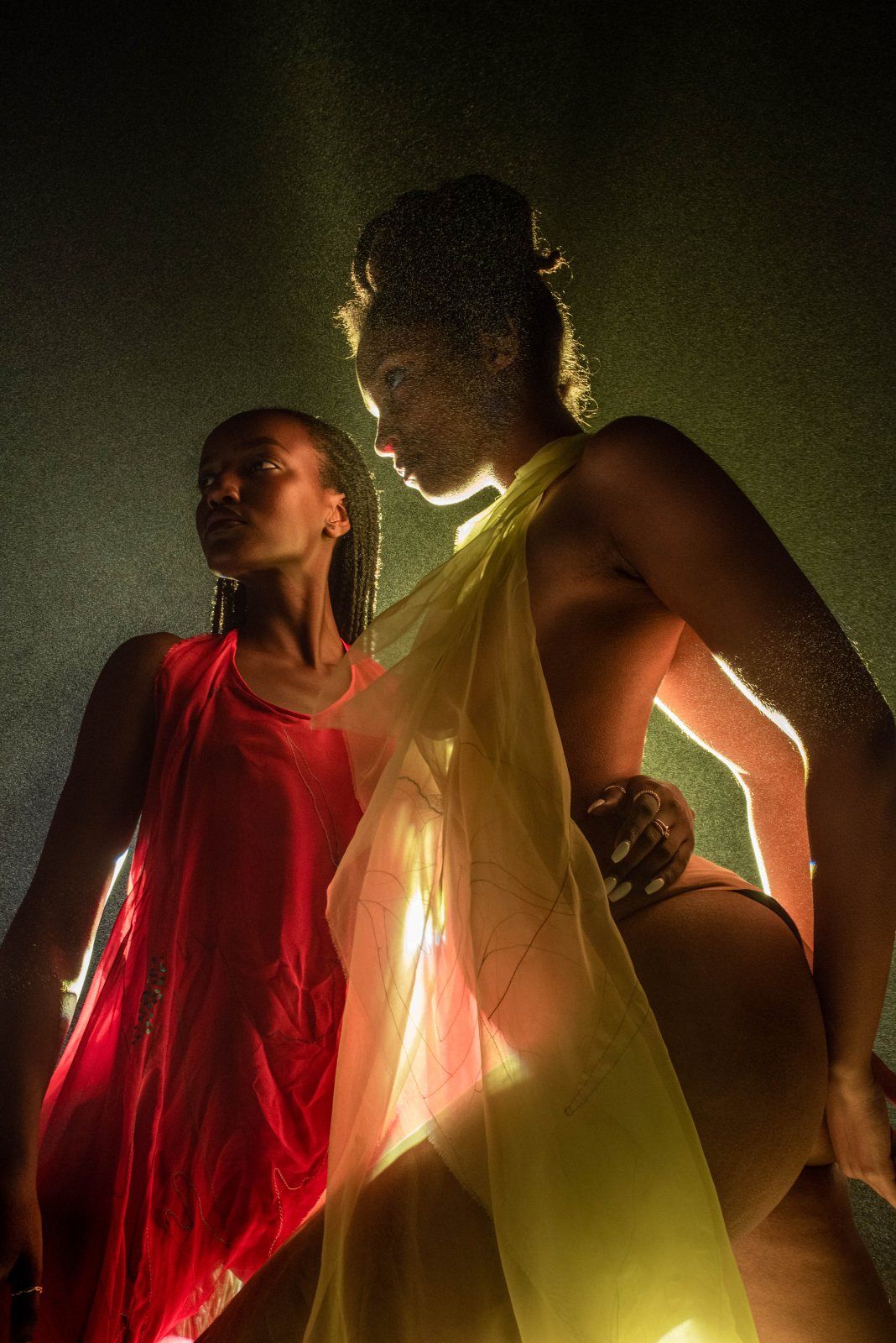
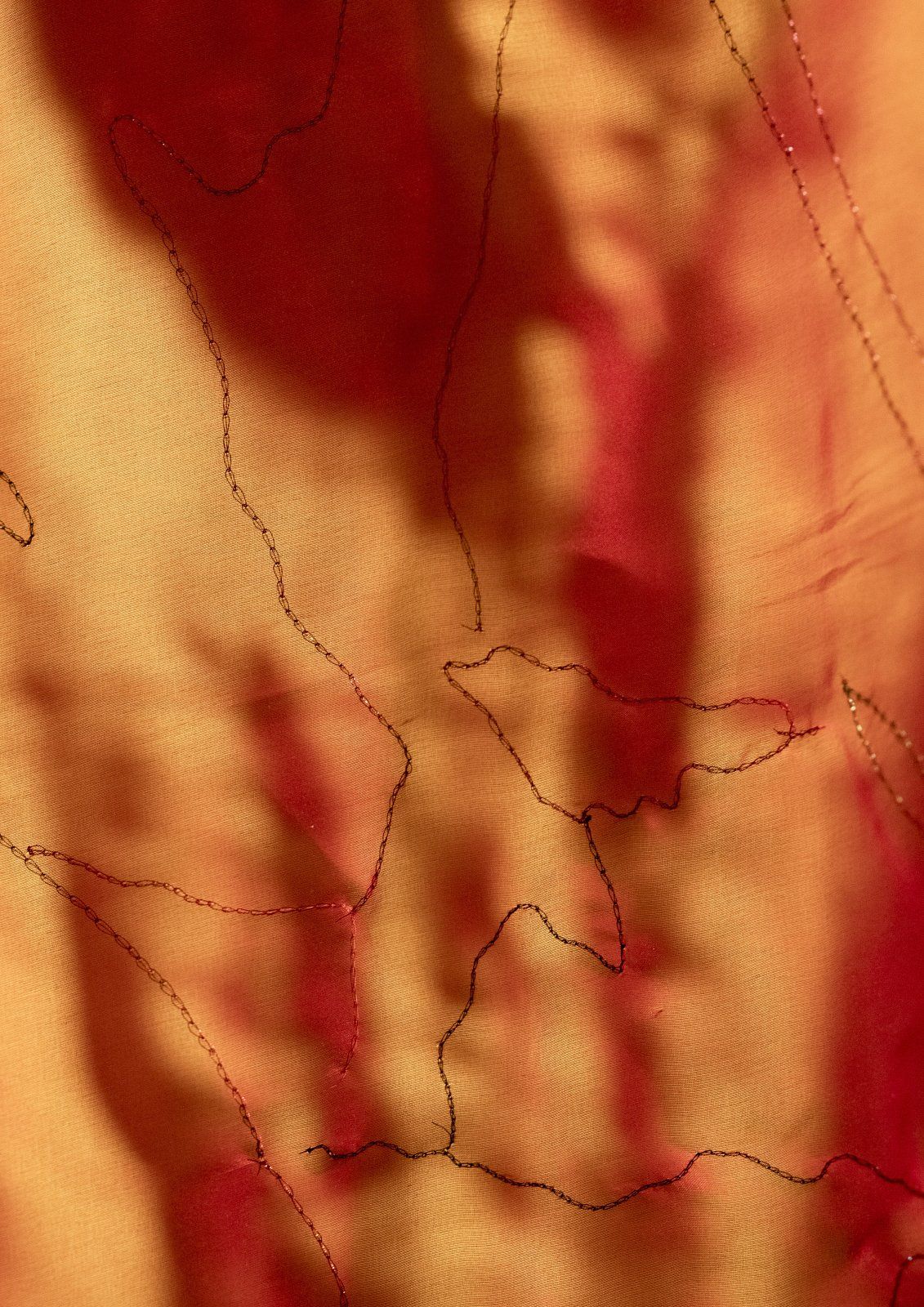
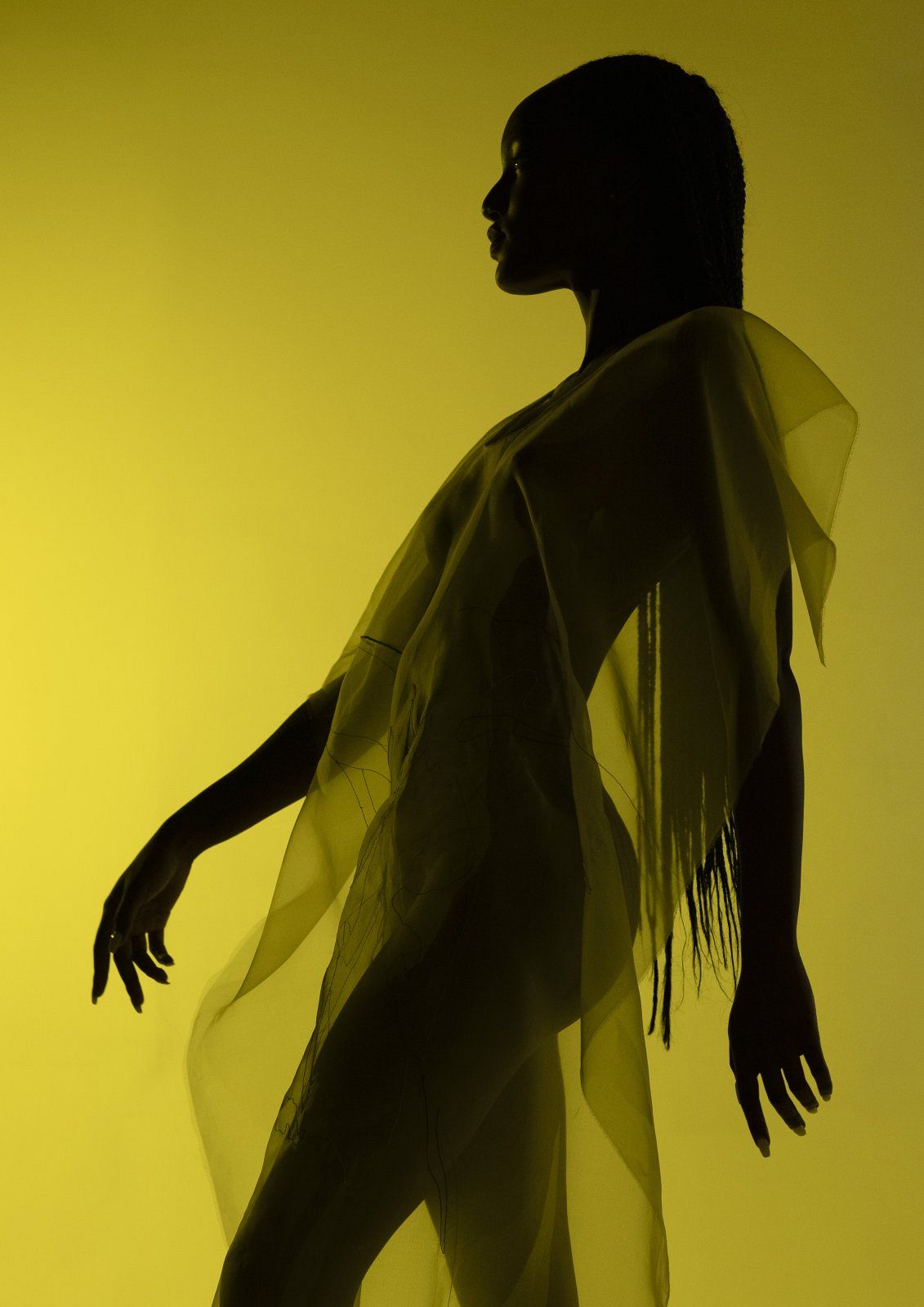
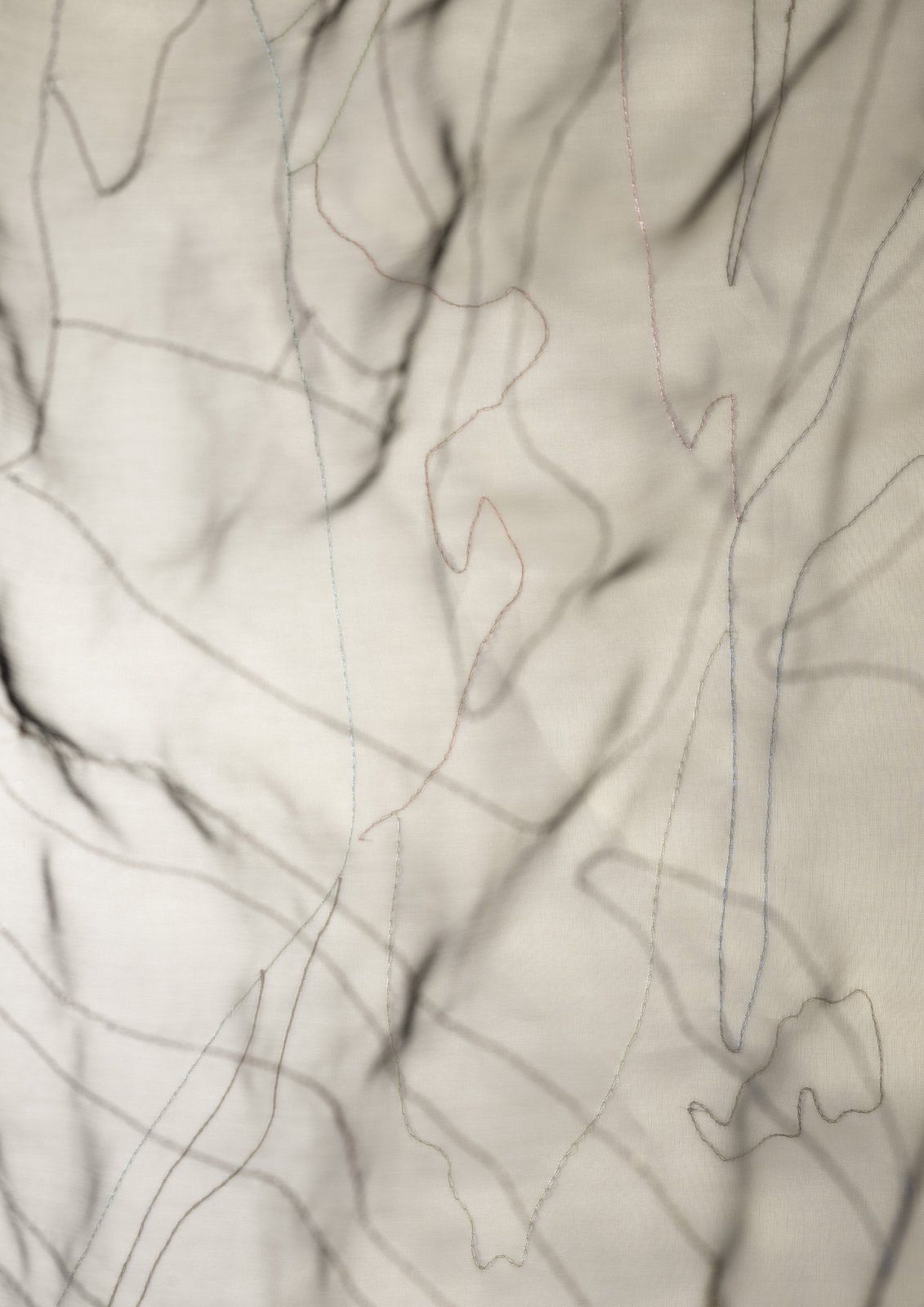
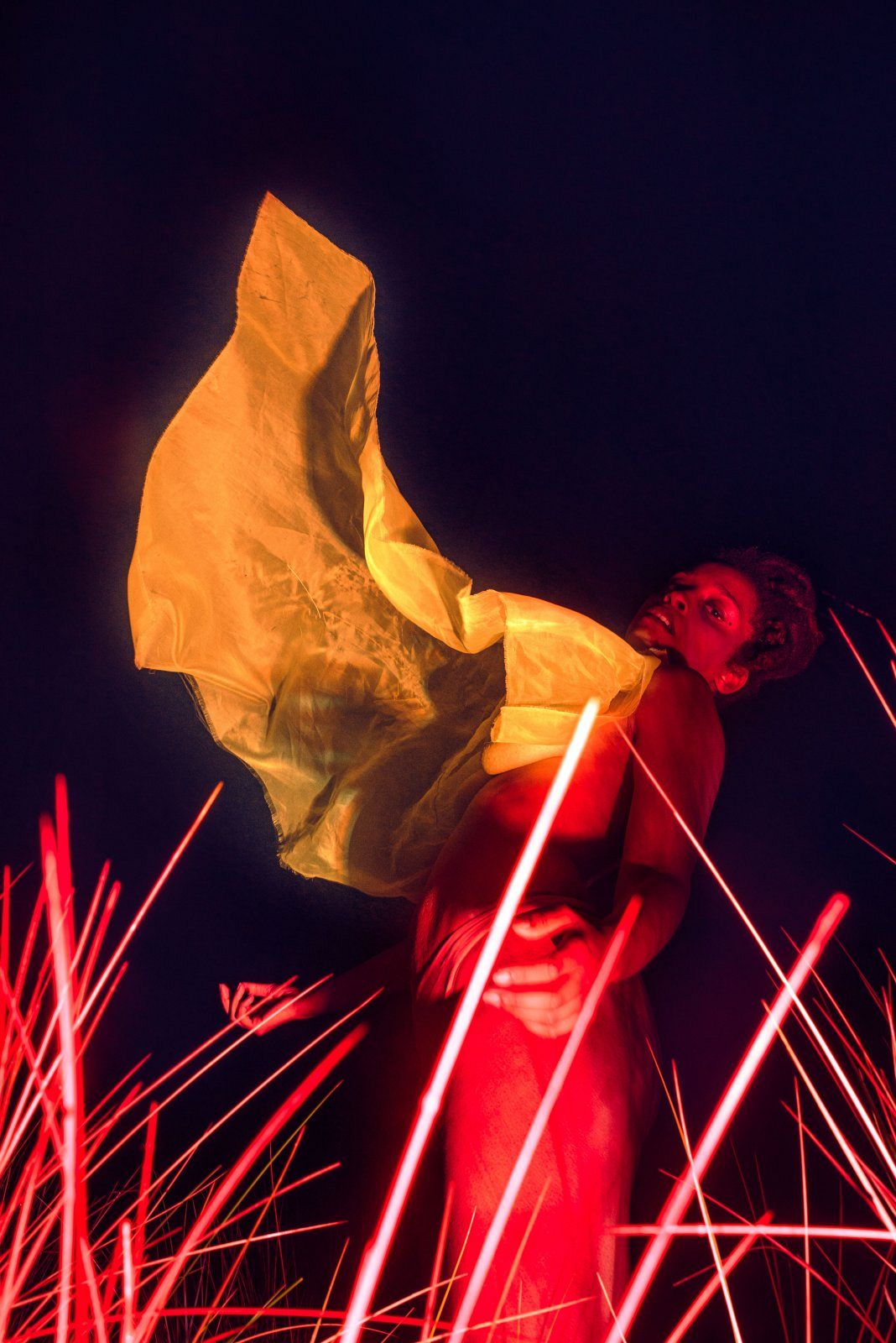
A STUDY INTO THE RELATION BETWEEN THE CURRENT FASHION INDUSTRY AND THE HISTORY OF COLONIALISM; WITH AN INSIGHT ON RACISM IN THE FASHION INDUSTRY AND A FOCUS ON THE NETHERLANDS
Thesis
Fashion brands nowadays get accused of cultural appropriation. It is possible that this can be related back to the history of colonialism. The aim of this research is to find out how the current fashion industry relates to the history of colonialism. For this purpose, the following research question has been drawn up: “Does the current fashion industry relate to the history of colonialism? And if so, how?”.
In order to answer the research question, theoretical research had to be carried out. As well as several conversations with people of colour. They all either had a connection to the Netherlands in combination with another culture and/or the fashion industry. However, most of the research in this thesis is based on the theoretical findings. These findings indicate that the worldview of the ‘West’ and the ‘Rest of the world’ and the ideas that date back from the colonial era are still influencing the current fashion industry.
By creating awareness of this fact, people can make more conscious decisions in the fashion industry. In order to not culturally appropriate anymore, but to appreciate. There are multiple follow-up research options. For example, to investigate the connection to the Netherlands more in-depth. Or define this subject further in the field of fashion education.